Cleaning anything: Kenya Hara explores all the ways we clean in a new book
‘Cleaning’ is a new book by Kenya Hara, offering a poetic photographic overview of all the ways we clean, and the tools we use

Cleaning is a new book edited by Kenya Hara for Lars Müller Publishers intended as 'a guide to the art of cleaning'. A poetic, photographic overview of cleaning, the compact tome is divided into different tools and actions, from sweeping to scraping, wiping and dusting.
Hara is among Japan's most influential creatives, working across media as a graphic designer and curator (with past projects including Architecture for Dogs). He is also notably the art director of Muji, for which he has created an iconic identity and campaigns that focus on visual simplicity (the Japanese brand also supported the book).
‘Cleaning’ by Kenya Hara, from Lars Müller Publishers
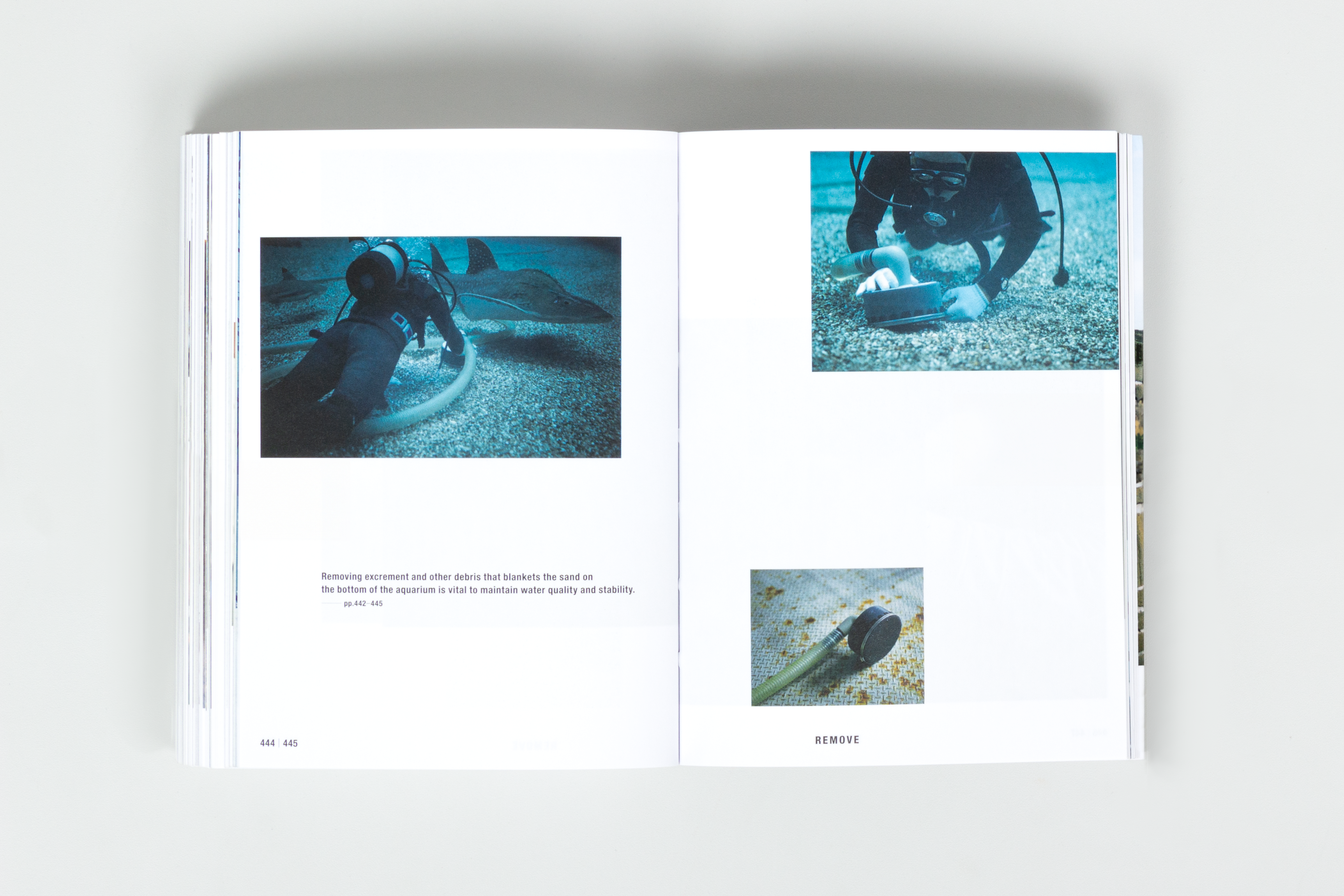
Aquarium cleaning
'In 2019, we went around the world photographing scenes in which people were pictured cleaning,' writes Hara in the book's foreword. 'This was before Covid-19 swept the globe. We had been wondering if the very essence of human beings lies dormant in the everyday and ordinary work of cleaning, which transcends culture and civilization.
'When the entire world stopped, these photos and videos made us miss our ordinary routines. No matter how technology advances in the future, people are living things, embracing a rhythm of life that perpetually resonates in the depth of the body. We can move forward heeding this natural internal rhythm.'
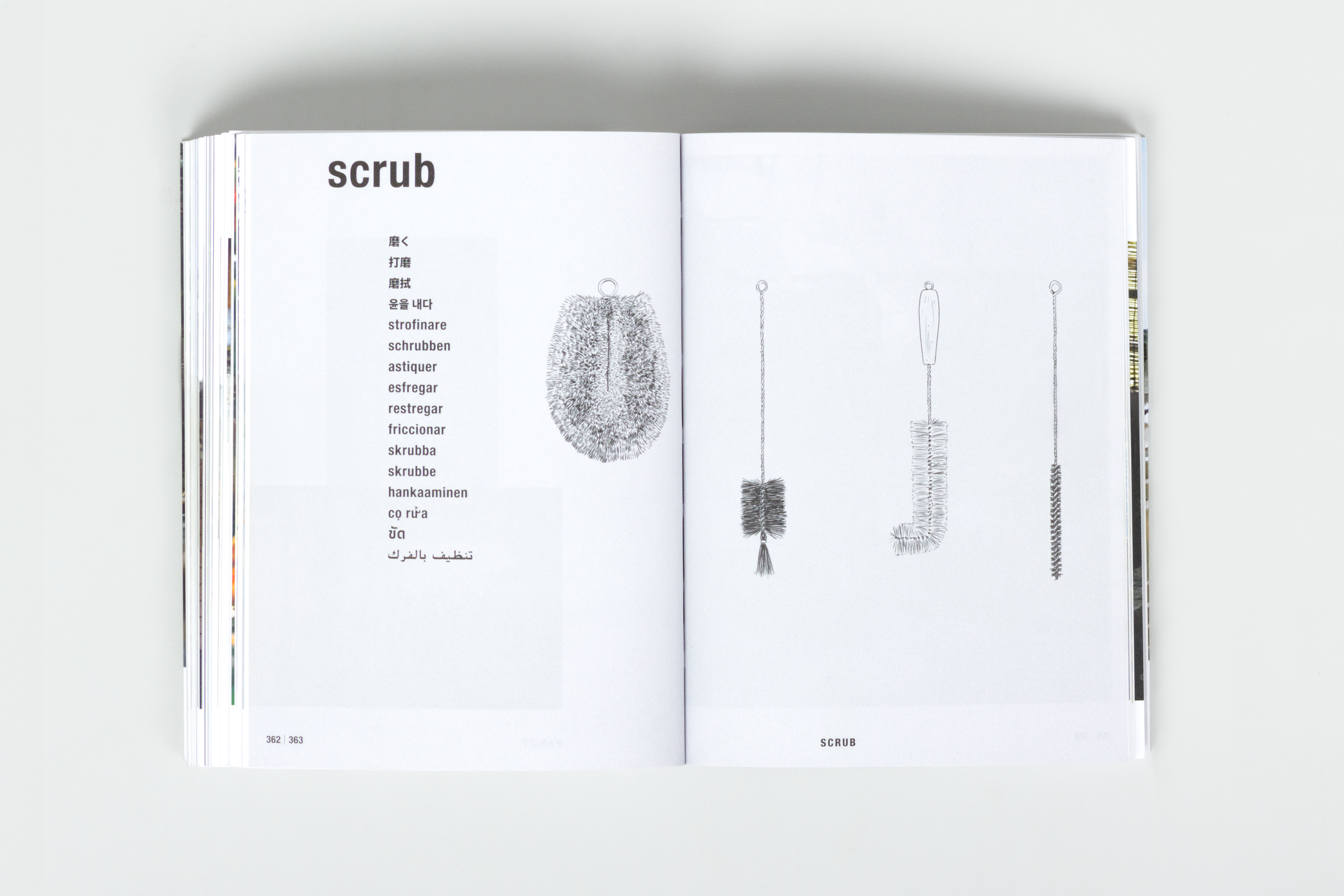
Tools for scrubbing
The book is divided into several chapters, each focusing on an action and introduced by an illustration documenting some of the most recurring tools for each job. Across the books' pages, we witness mundane tasks that include wiping dust from books, polishing shoes, sweeping temples, grooming elephants and scraping stickers from street signs.
But there is also a deeper meaning to the act of cleaning, with a section dedicated to the purifying rituals often linked to a diverse range of religions, which span from cleaning parts of one's body before prayer to cleaning more widely as part of a religious practice.
Illustrations are also present in three micro-chapters that offer some insight into practices that include 'Peddling cleaning tools', 'extreme-scale cleaning' and 'tools in continual use', offering a romantic view of an overused pan scourer or broom.
Receive our daily digest of inspiration, escapism and design stories from around the world direct to your inbox.

Sweeping 399 steps from top to bottom at Hasedera Temple, Nara, Japan
The beauty of the book lies in the fact that no tool is too banal, no action too mundane to be included with the same poetic approach. From a robot vacuum in action in a pristine apartment to the sweeping of streets, churches and concert halls, the book is both touching celebration and curious compendium of everyday life. The pages contain minimal text, often to make sense of some of the more obscure or curious practices, replicated in 16 languages, from Japanese and Arabic to Italian and Portuguese.
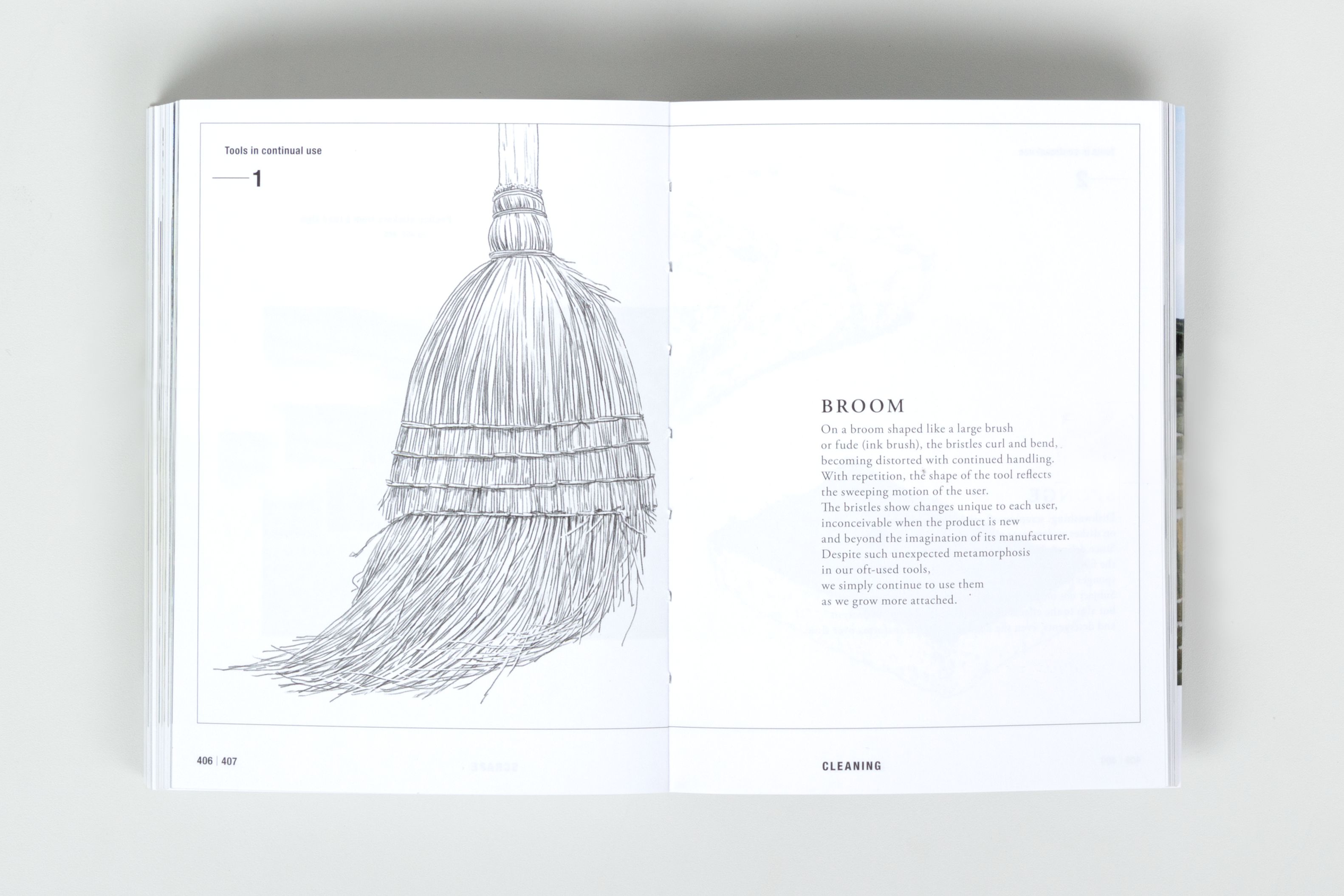
Broom from 'Tools in continual use'
'We call environments that people have created in response to nature "man-made". That which is man-made should be comfortable, but when materials that encroach upon or erode nature, like plastic and concrete, become widespread, people begin to yearn for nature,' reads an essay concluding the book.
'And yet, when nature is left to its own devices, dust and fallen leaves pile up, and plants thrive wildly. As a result, historically, human beings have lived by accepting nature to a certain extent and also keeping it moderately in check. And so, in creating a residence or a garden, it's uncouth and tasteless to allow the man-made to predominate. We must allow nature a moderate reign, neither over-sweeping the fallen leaves nor over-pruning the greenery. Just as at the water's edge, where the breaking waves cleanse the sandy beach, the ultimate secret of cleaning may be found where human agency and nature struggle against one another, in our pursuit of "moderate comfort".'
'Cleaning' is available from Amazon
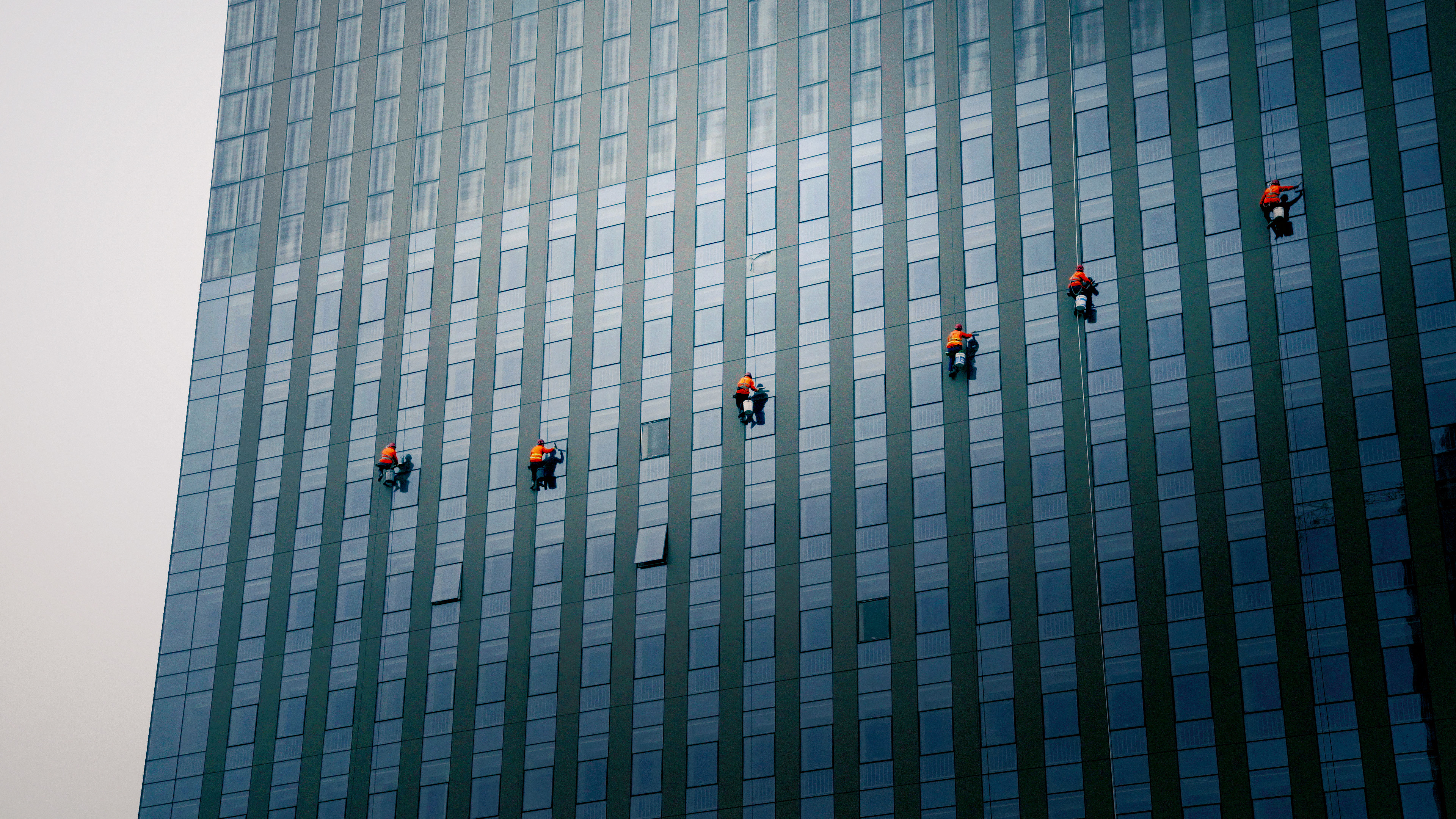
Cleaning the exterior walls of a 43-storey high rise
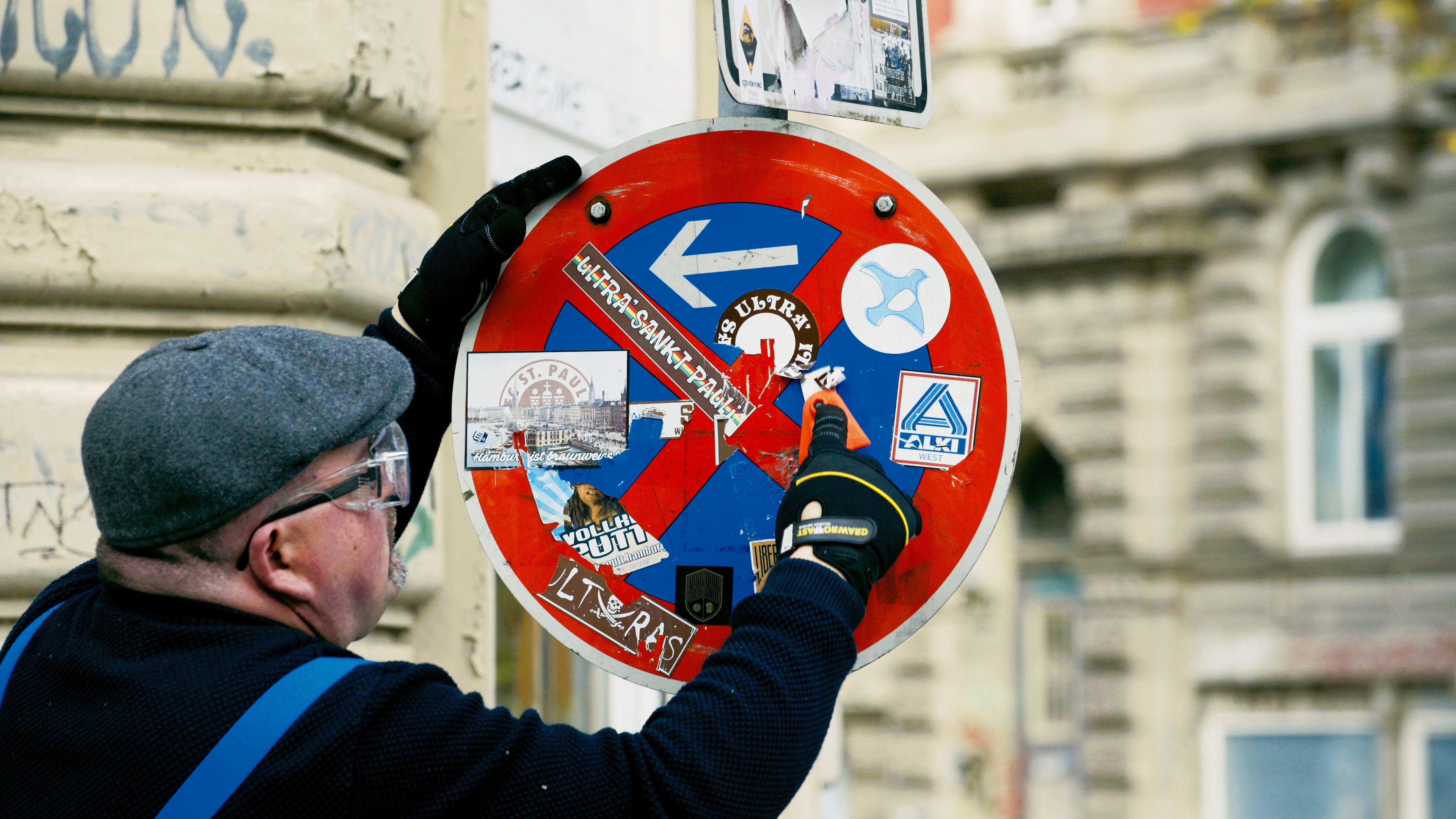
Peeling stickers from a road sign

A robot vacuum by MUJI
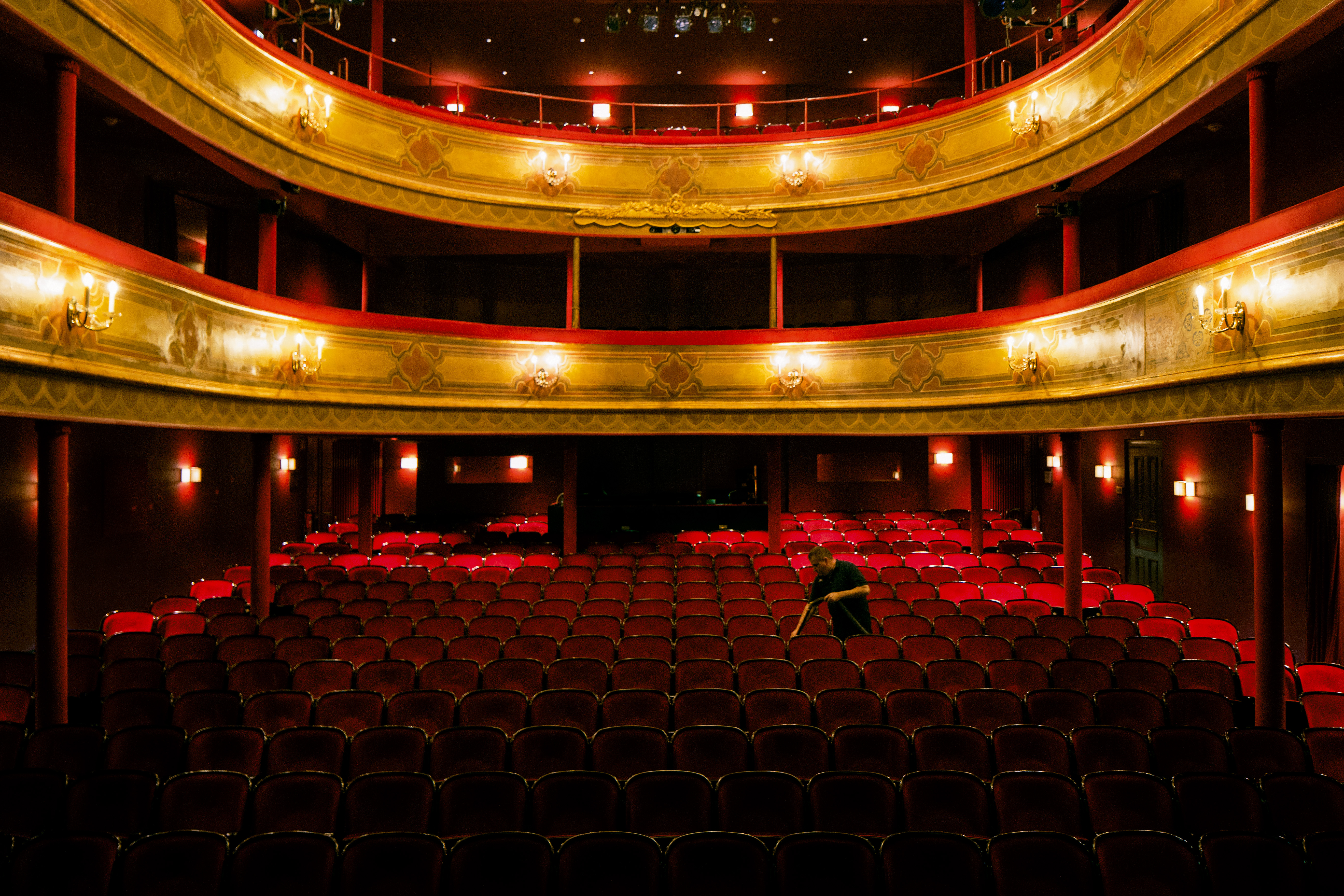
Vacuuming the theatre carpet and wiping the seats at St Pauli theatre, Hamburg

The crew polishes the deck of the ship with coconut cross sections on the Sail Training Ship 'Miraie'
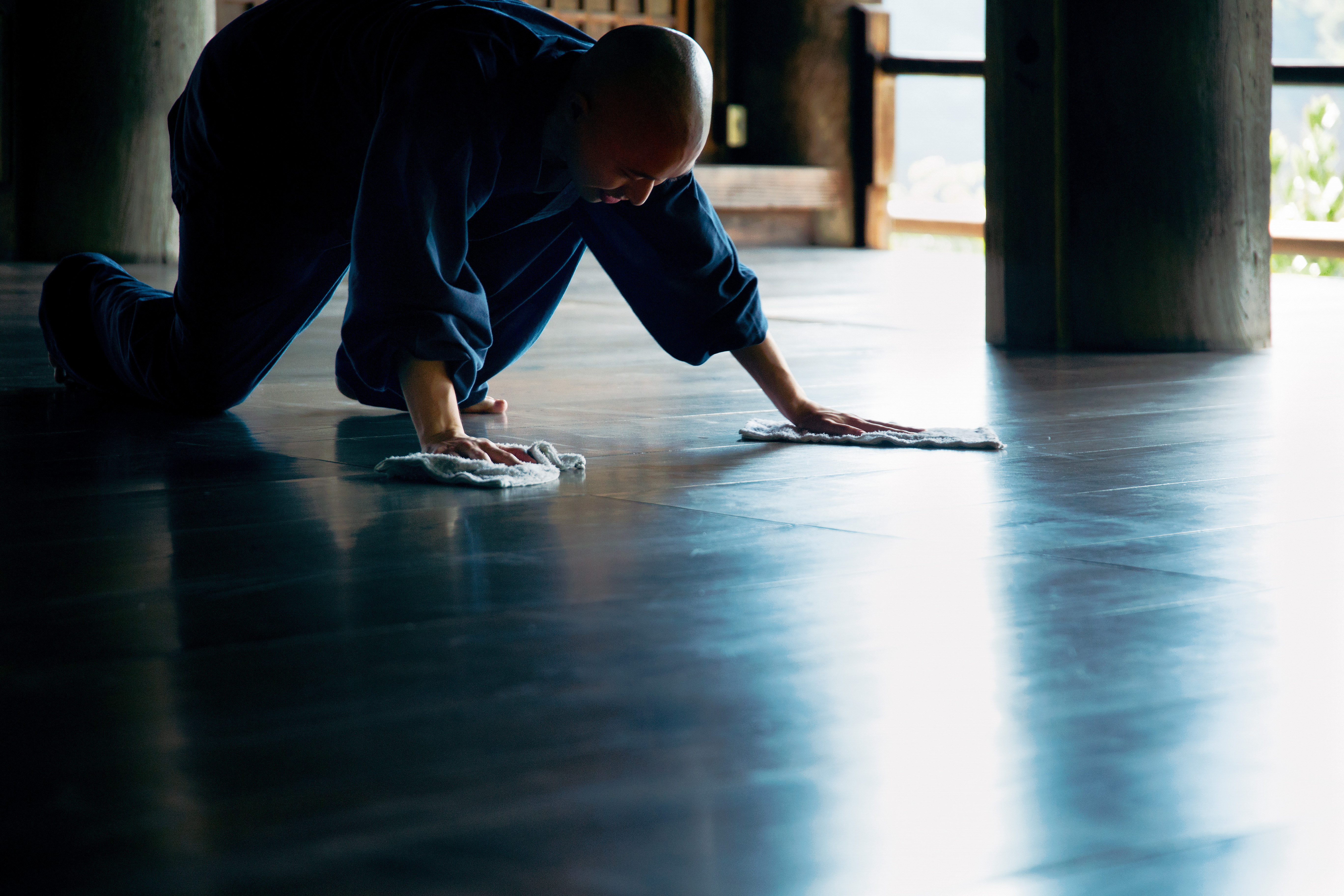
Cleaning the meditation hall starts early in the morning

Cleaning a 150mlong ship from a large-scale dock. Photography: Yoshihiko Ueda
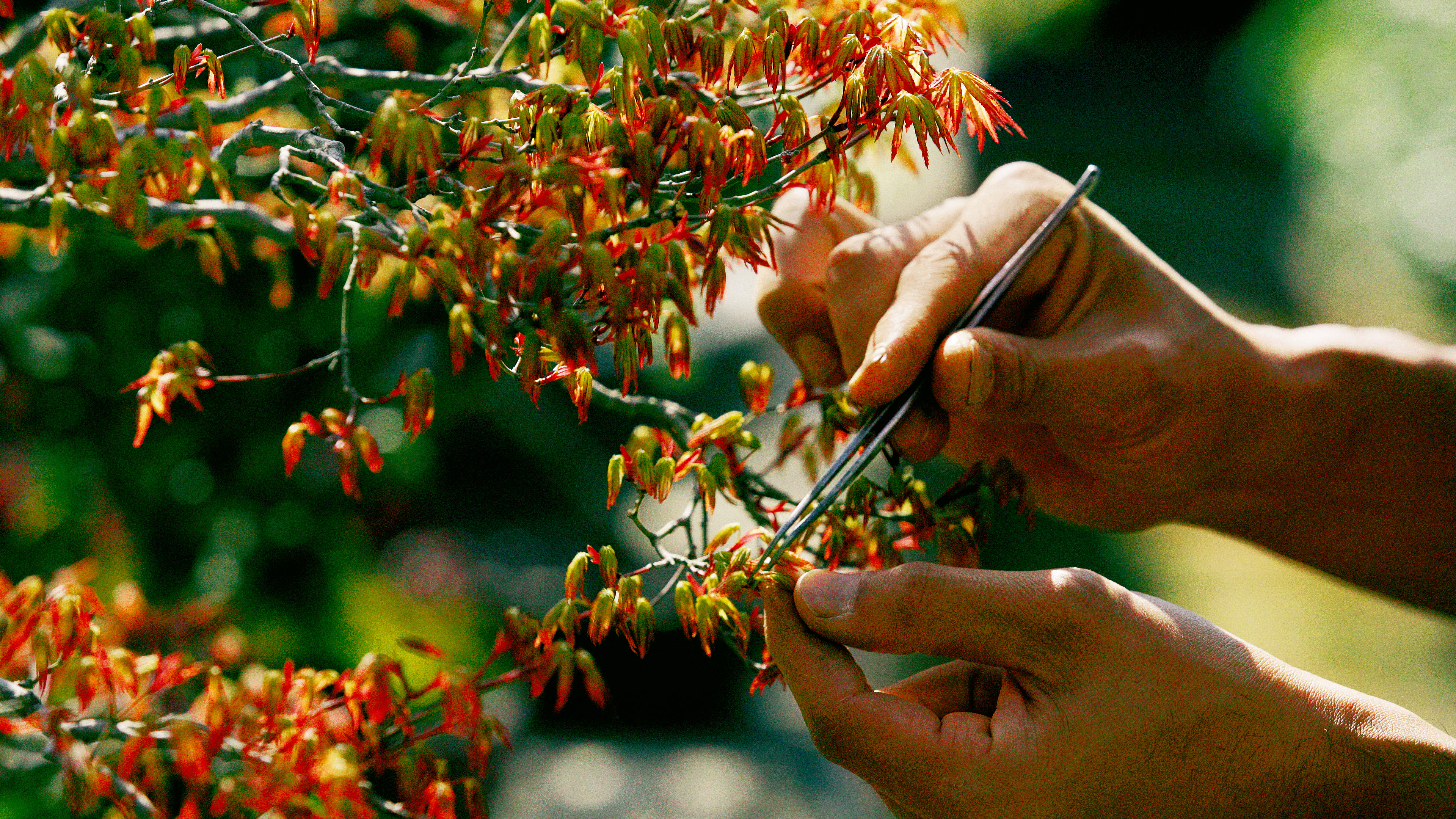
Bonsai pruning at Fuyo-en (Omiya Bonsai Village. Photography: Taiki Fukao

Sweeping the Great Wall of China. Photography: Taiki Fukao
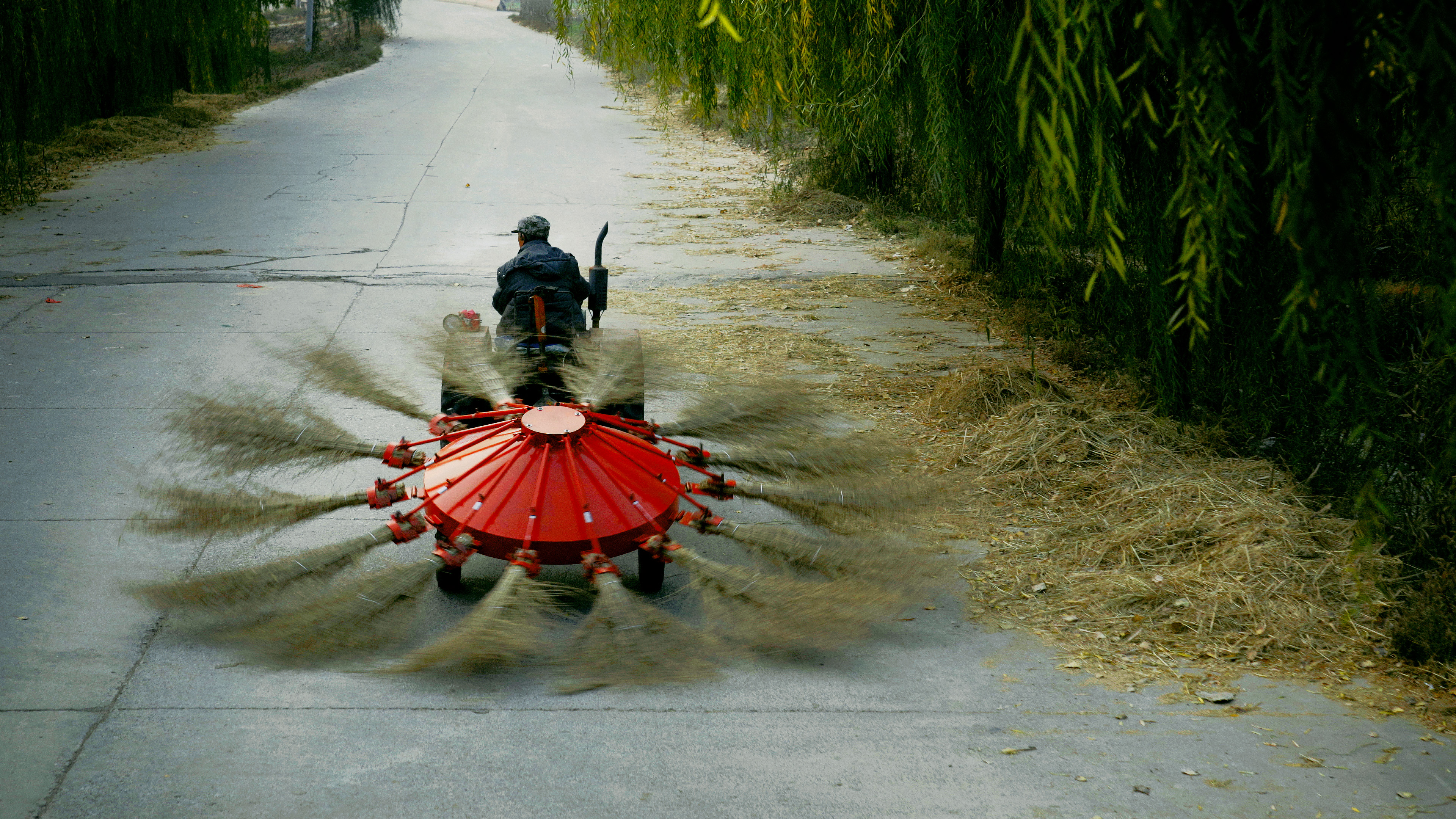
A truck with rotating brooms sweeping fallen leaves to the side. Photography: Taiki Fukao
Rosa Bertoli was born in Udine, Italy, and now lives in London. Since 2014, she has been the Design Editor of Wallpaper*, where she oversees design content for the print and online editions, as well as special editorial projects. Through her role at Wallpaper*, she has written extensively about all areas of design. Rosa has been speaker and moderator for various design talks and conferences including London Craft Week, Maison & Objet, The Italian Cultural Institute (London), Clippings, Zaha Hadid Design, Kartell and Frieze Art Fair. Rosa has been on judging panels for the Chart Architecture Award, the Dutch Design Awards and the DesignGuild Marks. She has written for numerous English and Italian language publications, and worked as a content and communication consultant for fashion and design brands.
-
 Year in review: the shape of mobility to come in our list of the top 10 concept cars of 2025
Year in review: the shape of mobility to come in our list of the top 10 concept cars of 2025Concept cars remain hugely popular ways to stoke interest in innovation and future forms. Here are our ten best conceptual visions from 2025
-
 These Guadalajara architects mix modernism with traditional local materials and craft
These Guadalajara architects mix modernism with traditional local materials and craftGuadalajara architects Laura Barba and Luis Aurelio of Barbapiña Arquitectos design drawing on the past to imagine the future
-
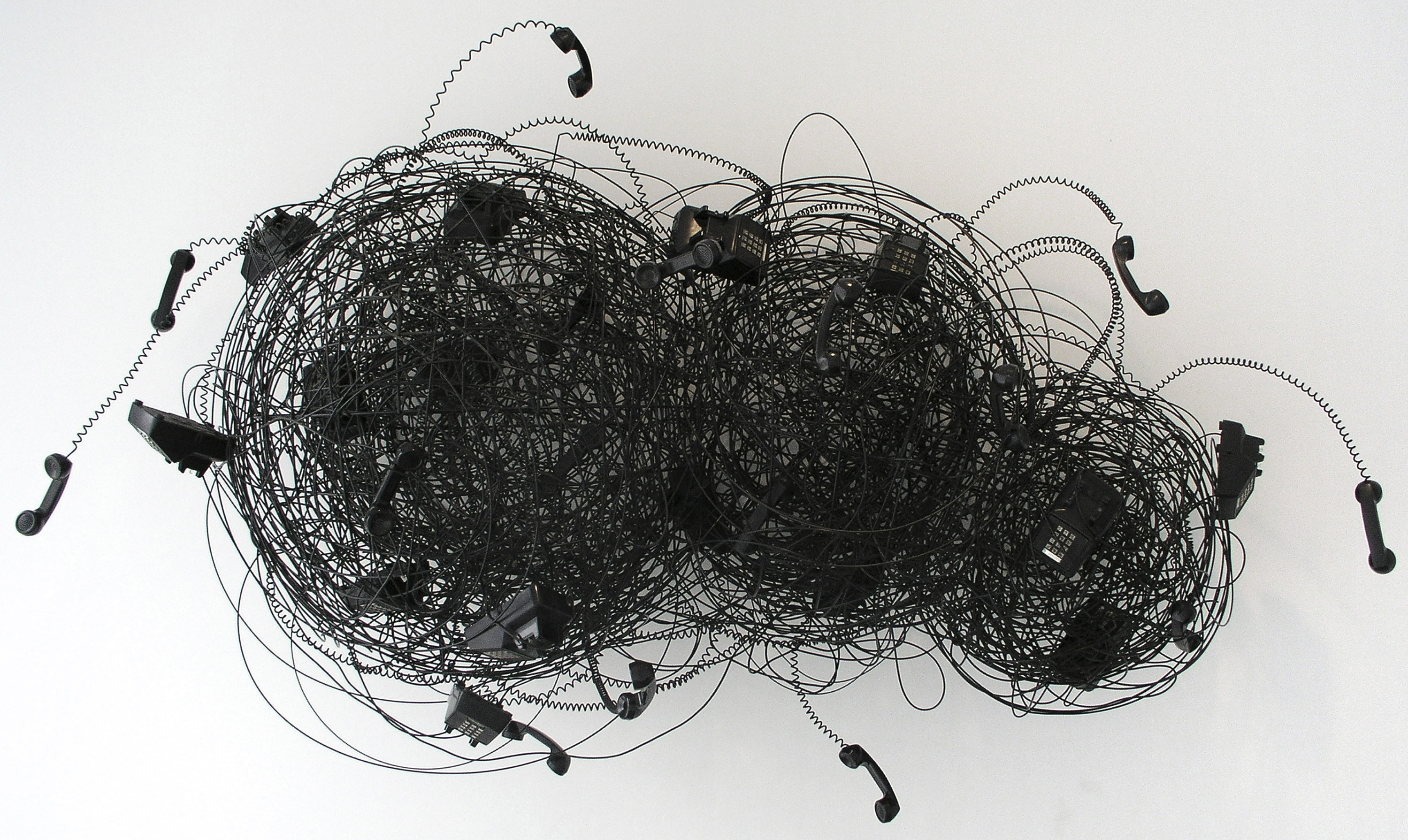 Robert Therrien's largest-ever museum show in Los Angeles is enduringly appealing
Robert Therrien's largest-ever museum show in Los Angeles is enduringly appealing'This is a Story' at The Broad unites 120 of Robert Therrien's sculptures, paintings and works on paper